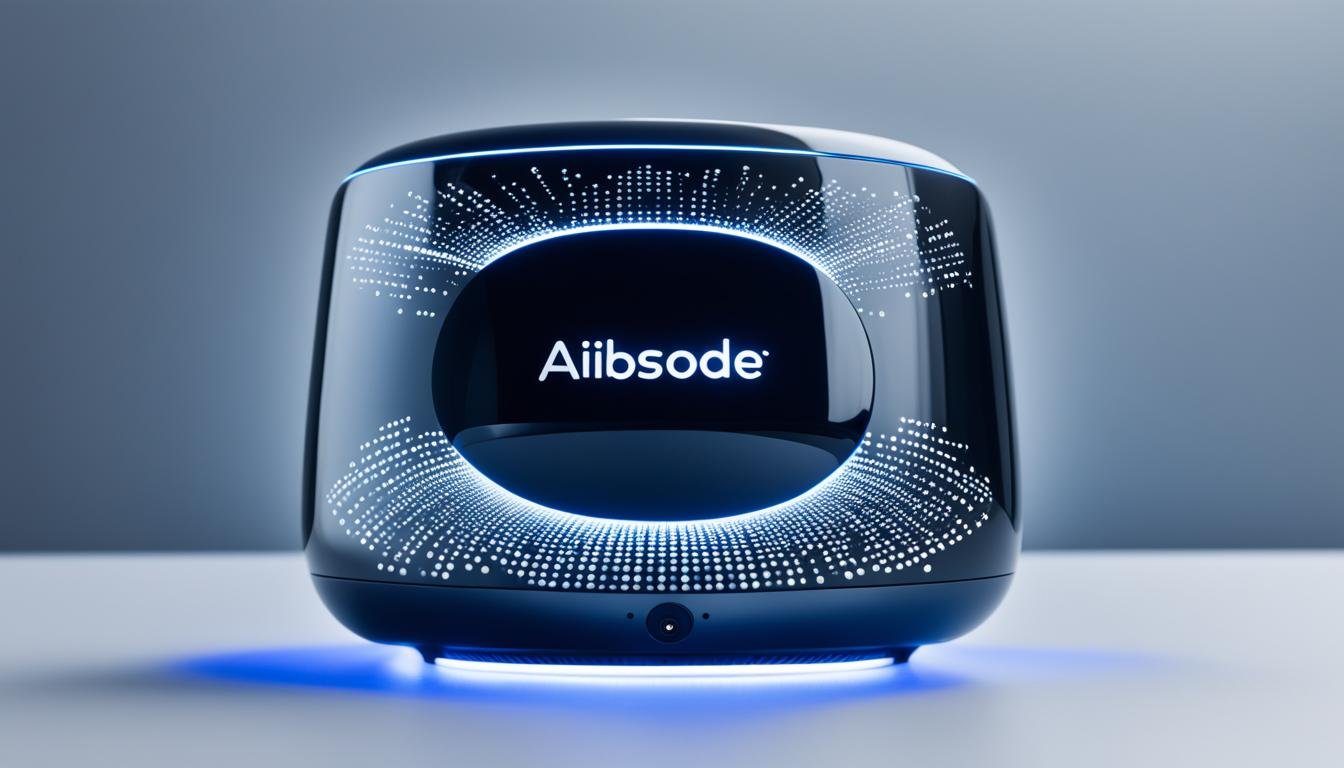OpenAI’s Sora AI is changing the game in video making. It turns text into stunning videos, making storytelling in both language and visuals seamless. This tech is a big step forward in making videos automatically.
Sora AI is a new project from OpenAI, a top AI research group. It uses advanced learning methods like diffusion models and transformer networks. Sora AI is changing how we make, watch, and interact with videos.
Key Takeaways
- Sora AI, an innovative text-to-video generation technology, is transforming the video creation landscape.
- Developed by OpenAI, Sora AI leverages cutting-edge AI advancements, including diffusion models and transformer networks, to bridge the gap between language and visual storytelling.
- Sora AI’s mission is to revolutionize the way we create and consume video content, empowering creators and democratizing the video production process.
- The technology behind Sora AI, including its computational deep dive into AI-driven video synthesis, is poised to reshape the future of visual media.
- Sora AI’s text-to-video capabilities have the potential to impact a wide range of industries, from media and entertainment to education and beyond.
Introduction to Sora AI: Bridging the Gap Between Language and Visual Storytelling
Sora AI aims to change how we make and watch videos. It uses AI to link language and visual stories. This opens up new ways to create content.
Sora AI’s Mission: A Computational Deep Dive into AI-Driven Video Synthesis
Sora AI wants to make a model that turns text into video. It combines natural language processing with visual algorithms. This makes going from text to video smooth.
Leveraging Diffusion Models and Transformer Networks
Sora AI uses diffusion models for making visuals and transformer networks for understanding text. This mix lets the system turn complex texts into videos that are both rich and accurate.
“Sora AI is redefining the boundaries of what’s possible in video creation, blending the power of language with the captivating visuals that engage and inspire audiences.”
With Sora AI, creators and storytellers can go beyond old video making limits. They can start a new era of AI-driven visuals that bring ideas to life in moving pictures.
The Core Technological Infrastructure of Sora AI
Sora AI’s video generation is powered by advanced diffusion models and transformer architectures. These technologies work together to open new doors in AI-driven video making. They are changing how we tell stories through visuals.
Diffusion Models for High-Fidelity Video Synthesis
Sora AI uses diffusion models to create high-quality videos from text prompts. These models improve noisy inputs into clear, detailed videos. They use a process called stochastic denoising, guided by text descriptions.
This lets Sora AI make videos that look real and match the text perfectly.
Transformer Architectures for Semantic Processing and Scalability
Transformer-based neural networks help Sora AI understand text deeply. These networks analyze text quickly and catch the language’s complex parts. This is key for making videos that match the text well.
With diffusion models and transformer networks, Sora AI is changing video making. This combo lets creators tell stories in a new way, with great detail and accuracy.
“The integration of diffusion models and transformer architectures within Sora AI represents a groundbreaking leap forward in the realm of video synthesis, unlocking new frontiers for creative expression and storytelling.”
Innovations in Video Generation Techniques
Sora AI is changing the game with its new way of making videos. It uses deep learning to make scenes come alive. Each frame of the video shows the story and theme of the text.
Complex Scene Representation
Sora AI does more than just spot objects. It builds detailed scene graphs from text. It knows about objects, characters, and how they relate to each other. It also understands the scene’s layout and timing.
This deep knowledge lets Sora AI make videos that look great and tell a good story.
Dynamics Modeling
Sora AI’s dynamics modeling makes the videos not just look good but also feel real. It simulates how objects and characters move and interact. This makes the videos feel real and pulls the viewer into the story.
| Sora AI Video Generation Techniques | Scene Representation | Dynamics Modeling |
|---|---|---|
| Advanced deep learning models | Dynamic scene graph construction | Simulation of physical interactions |
| Narrative and thematic depth | Encoding of objects, characters, and relationships | Lifelike and organic video content |
| Visually stunning video generation | Spatial and temporal attributes | Physically plausible movements and behaviors |
Sora AI combines these advanced techniques to change how we make and watch videos. It’s starting a new era of AI-driven storytelling and visuals.
sora AI: The Future of Video Content Creation
Sora AI is a big step forward in artificial intelligence, changing how we make and watch videos. It makes making videos easy with just text prompts. As it grows, it will open new doors for creativity and storytelling.
Sora AI wants to change how we make videos. It uses Sora AI future and AI-driven video content creation to make making videos easy for more people. This could let more people and businesses share their ideas easily and efficiently.
Sora AI can turn text into high-quality videos. It uses special technology to make videos that look great and make sense. This lets people try new ways of telling stories.
“Sora AI represents a pivotal moment in the evolution of video content creation, ushering in a new era of creative possibilities and accessibility.”
Sora AI is changing how we use videos in many areas. It could change marketing, education, and entertainment. It can turn words into exciting stories, making it a key player in the AI-driven video content creation world.

The future of making videos is with tech like Sora AI. As it gets better, it will open up endless possibilities for making stories and being creative. It lets users use Sora AI future and AI-driven video content creation to start a new era of innovation.
Impact on Creative Industries and Workforce
Sora AI is changing the way we make videos, and its effects on creative jobs and the workforce are huge. This tech could make making videos easier for everyone, boosting creativity. But, it also worries about jobs and changing traditional work in the video industry.
Navigating the Impact on Work and Creativity
Sora AI’s rise challenges traditional video makers, like videographers and animators. Sora AI’s impact could lead to fewer jobs as AI makes videos easier to make. This change makes us think about the future of work and the place of human creativity with AI.
But, Sora AI also opens doors for creative people to try new things and tell stories in new ways. Using Sora AI, creators can try out new video styles. This lets them make content that grabs viewers like never before.
Talking between OpenAI and creative industry leaders is key to making the most of Sora AI. Thinking about the right use of Sora AI is important to help the creative workforce. We need to make sure they can keep up and succeed in this new AI world.
| Potential Impacts | Opportunities |
|---|---|
|
|
“The rise of Sora AI poses both challenges and opportunities for the creative workforce. It is essential that we navigate this transition thoughtfully, ensuring that the benefits of this transformative technology are harnessed while mitigating its potential risks.”
Ethical Considerations and Responsible AI Deployment
Sora AI is changing how we make videos, but it also brings up big ethical questions. Its videos look so real, we worry about how they could be used wrongly. We’re concerned about how they might change what we think is real and the big effects on society.
OpenAI, the team behind Sora AI, is being careful with this tech. They’re only sharing it with a few people like teachers and artists. They’re testing it a lot to stop it from spreading false info or bias. This careful step is key to handling the ethical sides of Sora AI ethical considerations and AI-generated content ethics.
The Ethical Quandary of AI-Generated Content
Sora AI can make videos that look very real, which makes us think about what’s real and what’s not. As it gets more common, we’re worried about it being used for bad things like fake news or propaganda.
Using AI responsibly means we need to think hard about how it affects us. We must make sure it’s used in a way that’s right and safe. This means looking at privacy, getting people’s okay before using their images, and making sure it doesn’t take jobs from people who make videos.
| Ethical Consideration | Potential Impact | Proposed Mitigation Strategies |
|---|---|---|
| Authenticity and Trust | Eroding public trust in digital media, enabling the spread of misinformation and deepfakes | Rigorous testing, transparency, and clear labeling of AI-generated content |
| Privacy and Consent | Unauthorized use of individuals’ likenesses or personal data in AI-generated videos | Strict data privacy protocols, obtaining explicit consent from individuals featured in AI-generated content |
| Impact on Creative Workforce | Potential displacement of human creators in the video production industry | Collaboration between AI developers and human creators, retraining and upskilling programs for affected workers |
As Sora AI grows, we need to work together to use it right. By tackling the ethical issues, we can make the most of Sora AI. This way, we can keep making new and good videos while being careful and ethical.

Unleashing the Power of AI-Generated Videos for Webinars
Sora AI is changing the game for webinars. It makes creating and using video content easier and more effective. Presenters and organizers can now make their webinars look better, explain complex ideas, introduce speakers, or add visual interest.
Sora AI has cool features like picking images automatically, turning text into speech, and more. This means making high-quality videos fast and easy. It helps presenters spend more time on the content and engaging with the audience, not on making videos.
Adding Sora AI to webinars is a big deal. With Sora AI for webinars, presenters can make content that grabs attention and fits their live talks. This AI-generated video content works well with webinar platforms, making the info more dynamic and impactful.
Webinar organizers can also use Sora AI’s webinar video creation to make planning and promoting easier. They can make everything from pre-recorded intros to cool speaker profiles. This helps get more people to sign up and attend webinars.
“Sora AI has truly revolutionized the way we approach webinar video content. The ease of use and the high-quality results have transformed our ability to engage our audience and communicate complex ideas effectively.”
The webinar world is always changing, and Sora AI is leading the way with new solutions. By using this tech, presenters and organizers can make their webinars more engaging and successful. They can reach their audiences in a more powerful way.
The Semiconductor Revolution: Fueling AI’s Ambitions
The semiconductor industry is changing fast, and it’s making a big impact on artificial intelligence (AI). Sam Altman, the CEO of OpenAI, wants to invest $5–7 trillion to boost chip-making. This is crucial for AI models like Sora, which need a lot of power.
This move highlights the big challenge AI faces. As AI gets more complex, it needs more computing power. The semiconductor revolution will help Sora AI and other advanced AI technologies grow and spread.
Advances in the semiconductor industry are key to unlocking AI’s full potential. Sora AI and others need strong hardware to work with huge amounts of data. By investing in chip-making and research, companies like OpenAI are preparing for a future where AI can bring big changes.
| Industry | Projected Investment | Driving Factor |
|---|---|---|
| Semiconductor | $5-7 trillion | Computational requirements of advanced AI models like Sora |
This change will affect many areas, from making content to healthcare. As Sora AI and others get better, having strong and efficient chips will be key to their success.
“The semiconductor revolution will be essential in fueling the continued evolution and deployment of Sora AI and other cutting-edge generative AI technologies.”
In the future, the semiconductor industry’s growth will be vital for AI progress. It will let Sora AI and others explore new areas in visual storytelling and content creation.
The Dawn of Sora: A New Era in Video Generation
OpenAI has announced Sora, a new AI that can make high-quality videos from simple text. This is a big step forward in AI technology. Sora is like ChatGPT but for making videos, showing a big change in how we create and watch content.
Sora AI starts a new era in making videos, mixing language and visual stories. It uses special models and networks to make videos fast and accurately. These videos are both beautiful and engaging.
Sora AI is changing how we make videos, offering a new way to create content. It turns text into videos that grab your attention. This is a big step in using AI in making media.
“Sora AI’s launch marks a pivotal moment in the evolution of video generation. By empowering creators to transform their ideas into polished, high-quality videos, this platform is set to revolutionize the way we approach content creation in the digital age.”
Everyone is excited about what Sora AI can do. It promises to change how we tell stories with pictures. Sora AI could be a big deal for creators, producers, and viewers. It opens up new ways to tell stories, making the future of creativity bright.
| Feature | Sora AI | OpenAI |
|---|---|---|
| Video Generation | ✓ | ✓ |
| Text-to-Video Conversion | ✓ | ✓ |
| Diffusion Model Integration | ✓ | ✓ |
| Transformer Network Utilization | ✓ | ✓ |
| High-Fidelity Video Output | ✓ | ✓ |
Integration and Applications of Sora AI
Sora AI is growing fast, bringing new chances for creativity and storytelling. It’s changing the game in creative fields and webinars. With its ability to make high-quality, detailed videos, Sora is set to make a big impact.
In creative fields, Sora AI is a game-changer. It mixes language and visuals in new ways. Filmmakers, animators, and artists can now create stunning visuals and stories that grab audiences like never before.
Webinars are also getting a boost from Sora AI. It can make making videos easier, letting presenters create eye-catching and engaging webinars. This makes learning online better and helps presenters connect with their audience more deeply.
But, as Sora AI grows, we must focus on ethics, transparency, and safety. We need to deal with risks like fake news or misuse of personal data. This ensures we use Sora AI’s benefits safely.
Sora AI can change the creative world, improve webinars, and open new doors for workers. As we dive into this AI video era, Sora AI is set to change how we talk, work together, and engage online.
Conclusion: Embracing the Future of AI-Driven Content Creation
Sora AI and the semiconductor initiative show how artificial intelligence is changing the creative world. We’re at a turning point, where we must use AI’s power wisely. We need to look at the good and the bad sides of AI’s growth.
With Sora AI and other advanced video tech, we can do things we never thought possible in making content. This tech can help creators work better and open new ways to tell stories. But, we must think about the right way to use AI to keep it fair and respectful.
We must make sure AI tools like Sora are made and used in a way that’s open and responsible. This means we need rules that protect our values and keep creativity alive. By doing this, we can make a future where AI and humans work together to create amazing content for everyone.
